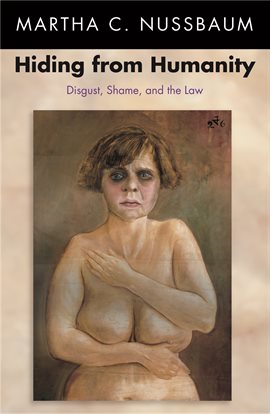
eBook
hoopla Instant
Hiding from Humanity
Year
2009
Language
ENGLISH
Publication Information
Princeton University Press
Summary
"Winner of the 2004 Award for Best Professional/Scholarly Book in Law, Association of American Publishers" "Martha C. Nussbaum, Recipient of the 2012 Prince of Asturias Award for Social Sciences" Martha C. Nussbaum is the Ernst Freund Distinguished Service Professor of Law and Ethics in the Philosophy Department, Law School, and Divinity School at the University of Chicago. Her most recent book is Upheavals of Thought: The Intelligence of Emotions. Should laws about sex and pornography be based on social conventions about what is disgusting? Should felons be required to display bumper stickers or wear T-shirts that announce their crimes? This powerful and elegantly written book, by one of America's most influential philosophers, presents a critique of the role that shame and disgust play in our individual and social lives and, in particular, in the law. Martha Nussbaum argues that we should be wary of these emotions because they are associated in troubling ways with a desire to hide from our humanity, embodying an unrealistic and sometimes pathological wish to be invulnerable. Nussbaum argues that the thought-content of disgust embodies "magical ideas of contamination, and impossible aspirations to purity that are just not in line with human life as we know it." She argues that disgust should never be the basis for criminalizing an act, or play either the aggravating or the mitigating role in criminal law it currently does. She writes that we should be similarly suspicious of what she calls "primitive shame," a shame "at the very fact of human imperfection," and she is harshly critical of the role that such shame plays in certain punishments. Drawing on an extraordinarily rich variety of philosophical, psychological, and historical references--from Aristotle and Freud to Nazi ideas about purity--and on legal examples as diverse as the trials of Oscar Wilde and the Martha Stewart insider trading case, this is a major work of legal and moral philosophy. "[A] lucid and carefully argued new book."---Brigitte Frase, Ruminator Review "A remarkably wide ranging and nuanced treatise on the interplay between emotions and law. . . . A short book review cannot do justice to Nussbaum's exceptionally thorough evaluation of shame, disgust and the law."---Stefanie A. Lindquist, Law and Politics Book Review "Disgust and shame are problematic emotions that often appear to want to repudiate our basic, body-based humanity, Martha Nussbaum claims in this ambitious and timely book. . . . Nussbaum is by no means in favor of purging the law of all reference to emotion: she in fact makes an eloquent case for why this cannot and should not be done. . . . But there are some emotions--Nussbaum mentions jealousy as well as shame and disgust--that appear to offer an unreliable guide to human behavior, to risk calling up mere prejudice and social stigma instead of valid distinctions."---Peter Brooks, Green Bag "Nussbaum is America's most prominent philosopher of public life, and a new book by her is always a force to be reckoned with. The argument of Hiding from Humanity, characteristically lucid, is carried on at two levels. First, she wants to put disgust on trial. . . . At a deeper level, however, Nussbaum's argument is not simply about the law, but about a whole conception of human society and what it means to be human."---John Wilson, The Boston Globe "What part should disgust pay in determining which acts society punishes, and how severely? And to what extent, if at all, should disgust's cousin, shame, be harnessed to play a role in punishment? As a liberal, Nussbaum comes to a liberal answer. But this does no credit to the painstakingly fair way in which she sets out and explores the arguments in both directions, and any reader who approaches her book with views firmly set is likely to leave it with solid certainties somewhat shake. . . . She traverses some difficult territory, from necrophilia and bestiality to Martha Stewart, to rea